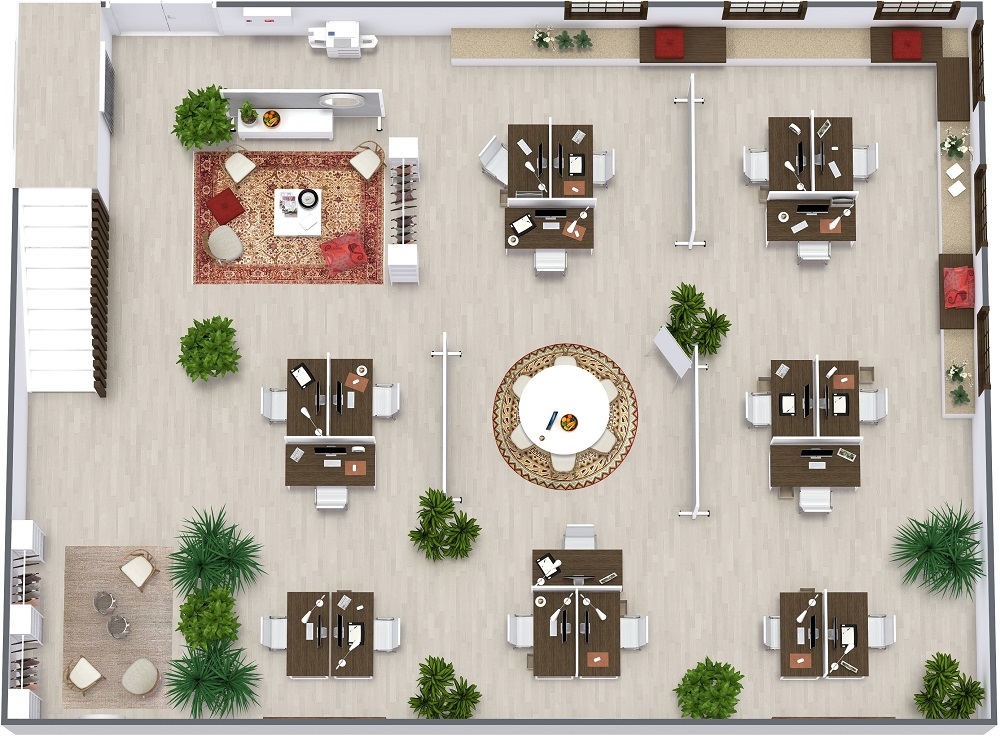

Office/Shop Vastu, also known as Vastu Shastra for commercial spaces, involves applying the principles of Vastu to the design and layout of offices, shops, and other business establishments. The goal is to create a positive and harmonious environment that promotes productivity, prosperity, and success.
Here are some key considerations for Office/Shop Vastu:
- Entrance: The entrance to the office or shop is crucial in Vastu. It should be well-lit, welcoming, and free from obstructions. The entrance door should ideally face a positive direction to attract positive energy.
- Directional Alignment: Like residential Vastu, the cardinal directions play a significant role in Office/Shop Vastu. Different zones within the commercial space are associated with specific energies, and the layout should be planned accordingly. For example, the reception area may be placed in the north or northeast direction.
- Reception Area: The reception area is considered the face of the business. It should be well-organized, clutter-free, and aesthetically pleasing. The placement of the reception desk and seating arrangements should follow Vastu principles to encourage positive energy flow.
- Workstations and Cabins: The layout of workstations and cabins should be designed to facilitate a smooth flow of energy. Placement of key personnel, such as the manager or owner, may be recommended in specific directions based on Vastu guidelines.
5. Cash Counter or Billing Area: For shops or businesses dealing with transactions, the cash counter or billing area is significant. Vastu principles may guide the placement of the cash counter to enhance financial prosperity.
6. Meeting Rooms and Conference Rooms: The design and placement of meeting rooms and conference rooms are important for smooth communication and decision-making. Vastu principles may offer recommendations for the ideal location of these spaces within the office.
7. Color Schemes: Vastu suggests specific colors that are believed to enhance positive energy in commercial spaces. The choice of colors for walls, furniture, and decor can be influenced by Vastu principles.
8. Storage Areas: The location and organization of storage areas, such as filing cabinets and shelves, are considered in Vastu to ensure that they do not obstruct the flow of energy.
9. Toilets and Pantry: Vastu guidelines may provide recommendations for the placement of toilets and pantry areas to minimize negative energy impact on the business.
It’s important to note that while many people follow Vastu principles for their commercial spaces, these guidelines are based on traditional beliefs and cultural practices. As with residential Vastu, the effectiveness of Office/Shop Vastu is subjective, and individuals may choose to incorporate these principles based on personal preferences and cultural influences. Consulting with a Vastu expert can provide more tailored guidance for specific office or shop layouts.
